7 Ways a CBT Guilt Worksheet Can Help You
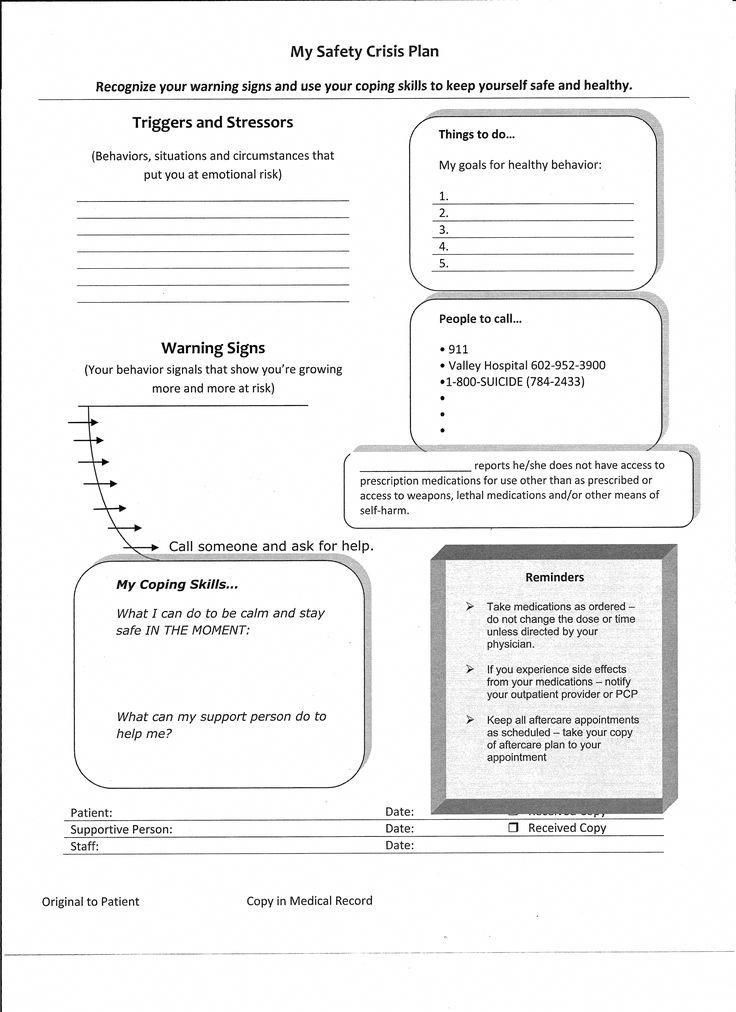
Guilt is a complex emotion that often acts as an inner compass to guide us towards better behavior. Yet, when left unchecked, it can lead to overwhelming feelings and a sense of self-worth that plummets. This is where tools like a CBT guilt worksheet can be incredibly beneficial. Cognitive Behavioral Therapy (CBT) is a widely recognized therapeutic approach that helps individuals identify and modify negative thinking patterns. Here are seven ways a guilt worksheet can help you manage and overcome feelings of guilt:
1. Identifying Negative Thoughts
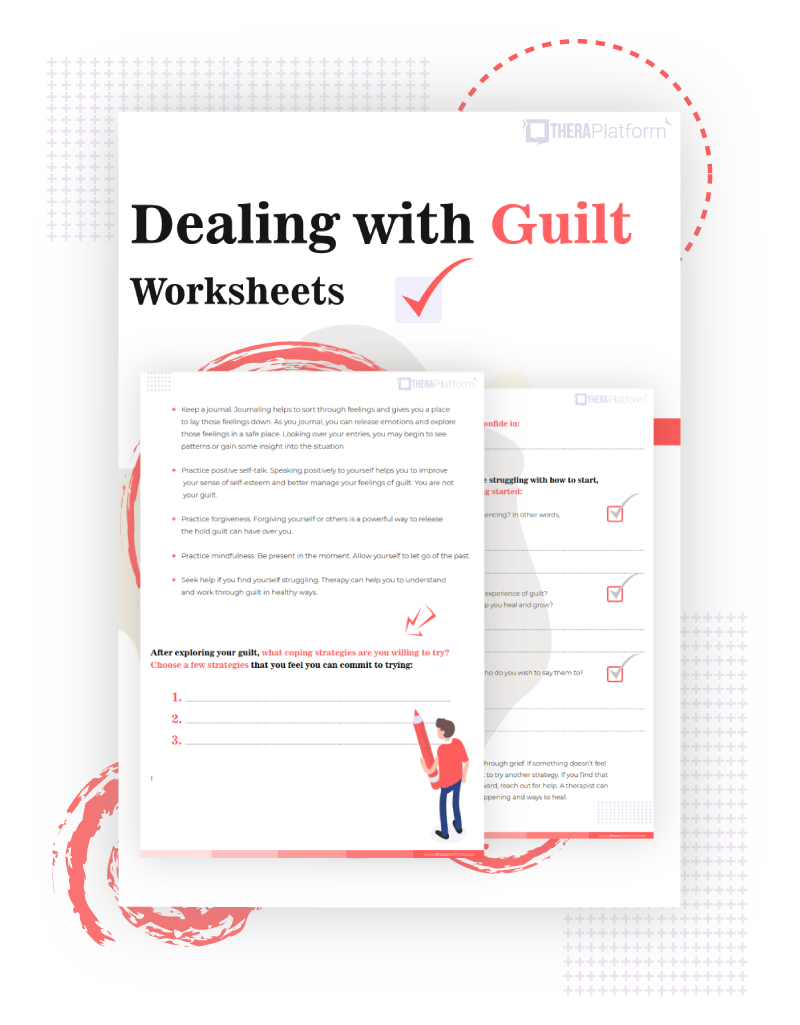

CBT’s primary principle revolves around understanding how thoughts influence emotions and behaviors. A guilt worksheet can:
- Help you pinpoint specific guilt-inducing thoughts.
- Encourage you to write down these thoughts, making them tangible.
Through this process, you begin to see the pattern of negative thinking, which is the first step towards change.
2. Challenge Irrational Beliefs
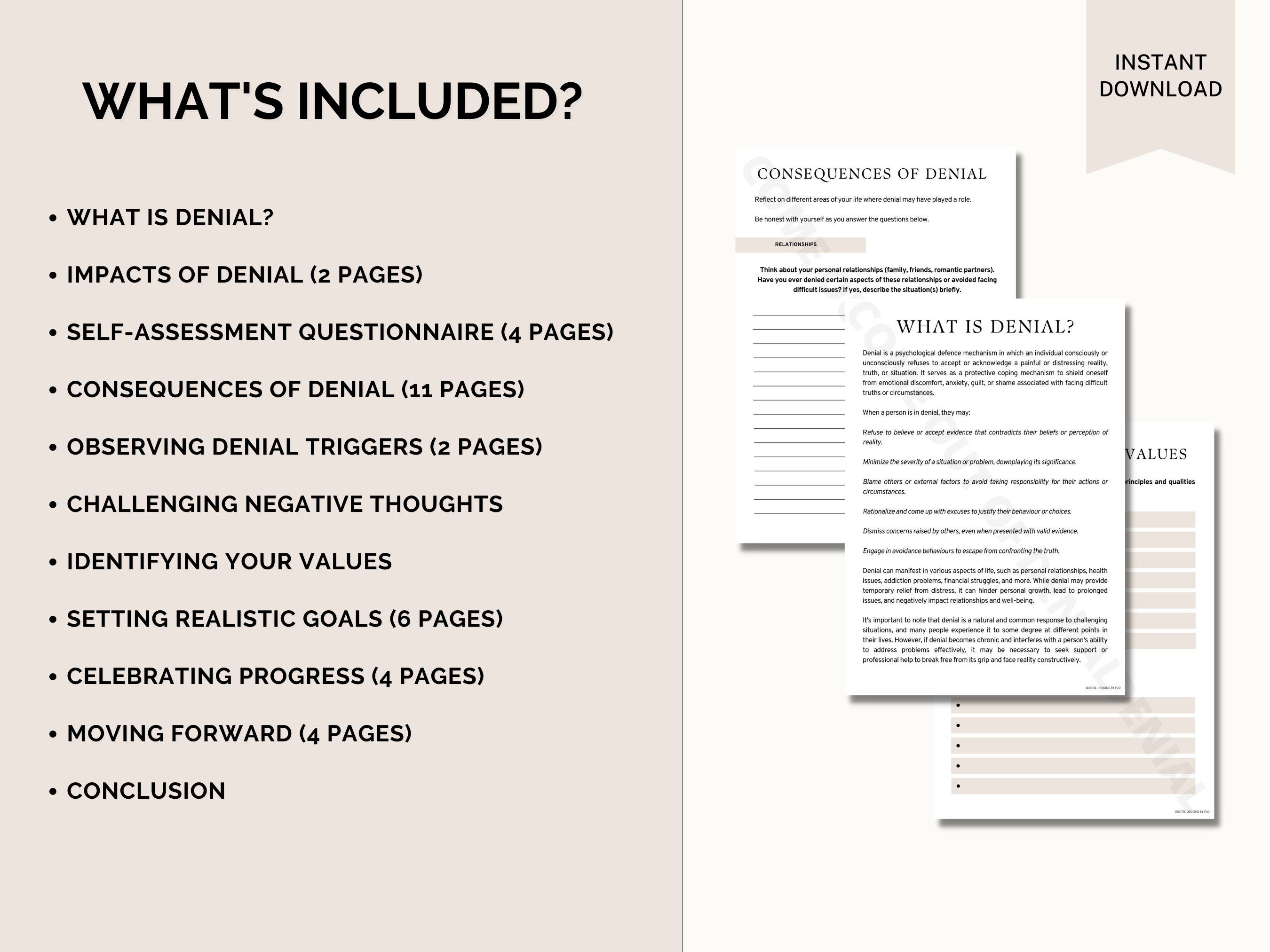
Guilt often stems from irrational or exaggerated beliefs about oneself, others, or situations. By using the worksheet:
- Identify the thought: “I should always make everyone happy.”
- Challenge it by asking, “Is this realistic? Can I control others’ feelings?”
This practice can help dismantle unhelpful beliefs, replacing them with more rational, balanced thoughts.
3. Objectify Guilt


Rather than being engulfed by guilt, a worksheet allows you to:
- Write down the facts of the situation that triggered the guilt.
- View the situation objectively, assessing if guilt is appropriate.
Objectifying guilt helps in understanding whether your emotions are proportionate to the situation or not.
4. Practice Forgiveness
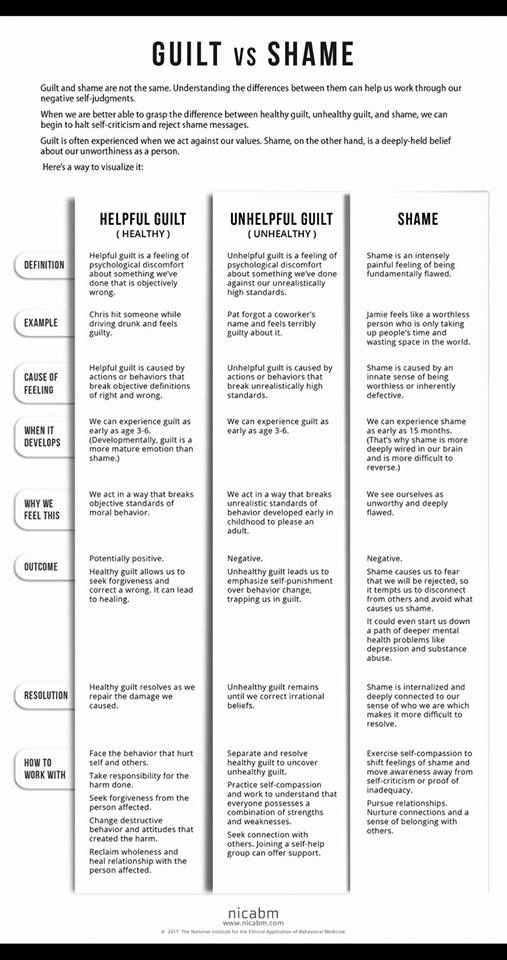
Forgiveness, both of oneself and others, is crucial in reducing guilt:
- The worksheet can guide you in acknowledging mistakes, learning from them, and forgiving.
- By writing down self-forgiveness affirmations, you’re more likely to internalize these messages.
Encouraging forgiveness can ease the burden of past mistakes.
5. Enhancing Communication Skills
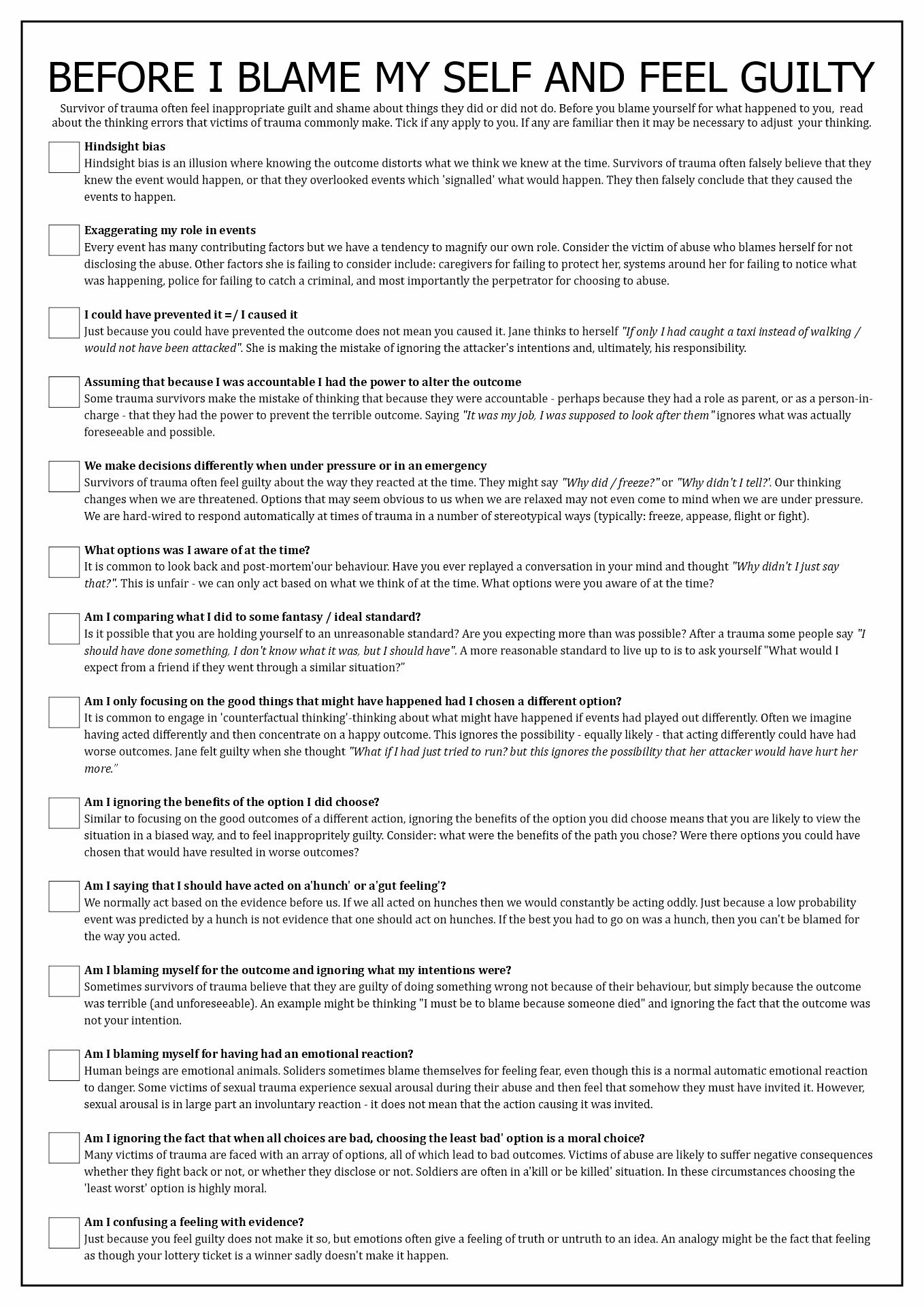

Guilt often arises from miscommunication or misunderstandings. The worksheet:
- Provides a structure to articulate your guilt, helping in clearer communication.
- Can act as a tool for practicing how you would express guilt or request forgiveness.
Better communication reduces the likelihood of recurring guilt from similar situations.
6. Promote Behavioral Change
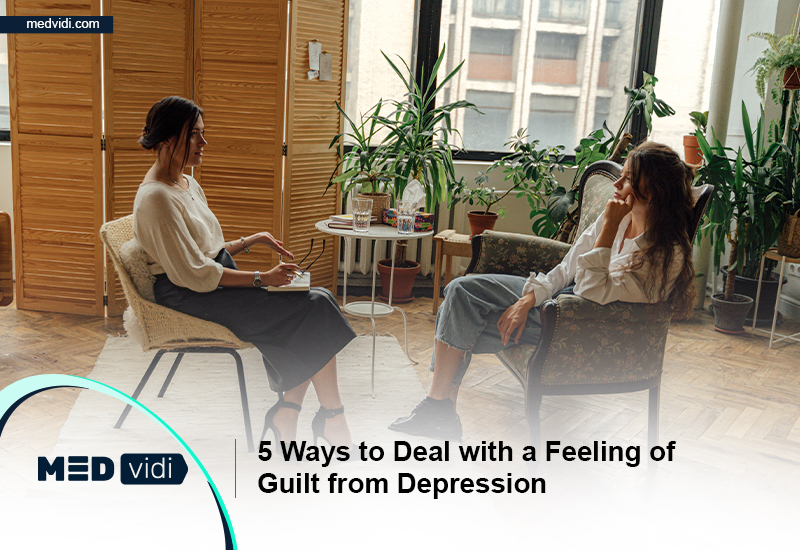
| Guilt | Behavioral Change |
|---|---|
| Feeling guilty for not exercising. | Creating a schedule for regular exercise. |
| Guilty for procrastinating on important tasks. | Implementing time management techniques. |

Identifying guilt through a worksheet can inspire action towards positive change. It prompts you to:
- Reflect on why the guilt arises.
- Plan behaviors that align with your values, reducing the occurrence of guilt.
7. Long-term Emotional Regulation
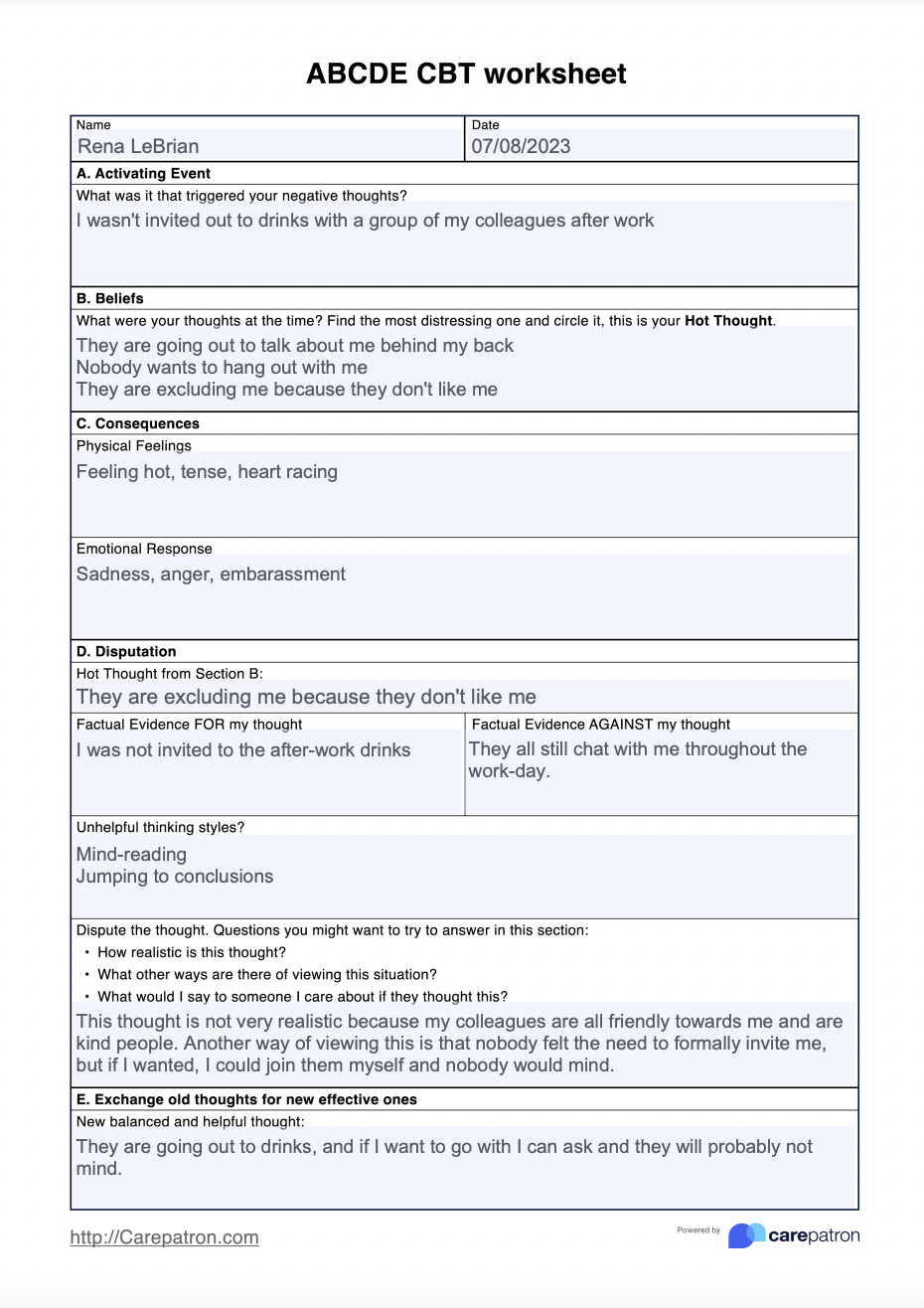

Regular use of a guilt worksheet promotes:
- Better emotional regulation by teaching you to respond to guilt in healthier ways.
- Patterns in guilt triggers, allowing for preemptive coping strategies.
Over time, this leads to a more stable emotional state, reducing the frequency and intensity of guilt feelings.
📌 Note: Using a CBT guilt worksheet is a tool, not a cure-all. For deep-seated issues, consulting with a therapist might provide additional support.
These seven ways in which a guilt worksheet can aid you highlight its potential as an accessible, personal development tool within the CBT framework. By implementing these strategies, you empower yourself to manage guilt constructively, fostering a healthier self-image and a more fulfilling life.
How long should I use a CBT guilt worksheet?

+
The duration of use can vary, but many find that using the worksheet consistently for a few weeks can help establish new thought patterns. It’s beneficial to continue using it whenever guilt resurfaces to maintain the progress.
Can a guilt worksheet replace therapy?
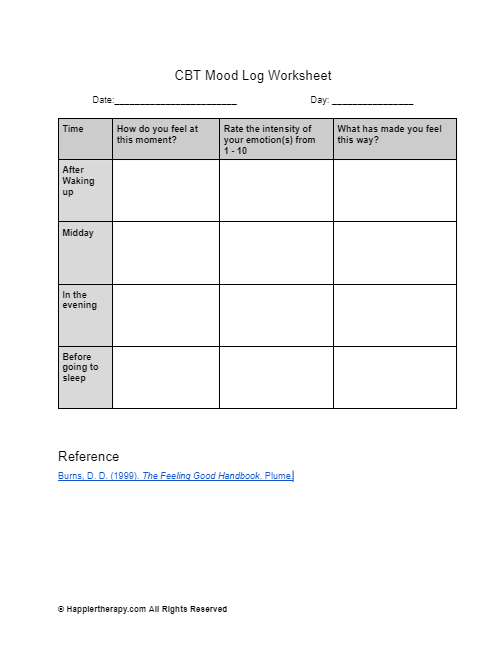
+
While a worksheet is a powerful tool, it’s not a substitute for therapy. It can complement therapy or provide self-help, but for deep-rooted issues or when guilt significantly affects your life, seeking professional help is advisable.
What if I can’t identify why I feel guilty?

+
If the source of your guilt is elusive, it might be due to subconscious factors. Discussing with a therapist can help uncover hidden thoughts or feelings driving your guilt.